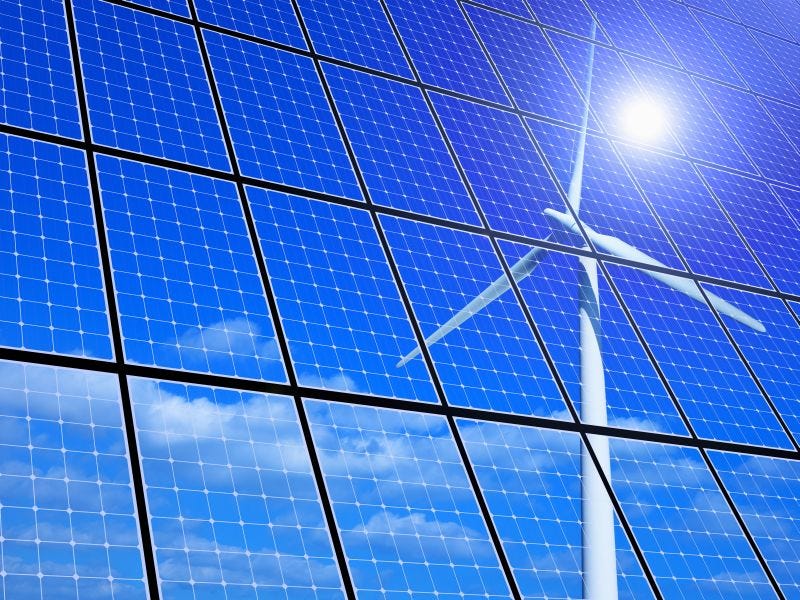Net Zero: reality bites
Labour has postponed its proposed 'green budget', the EU is rowing back from car and boiler bans, and even the Guardian is dumping on recycling.
Last week, Labour's shadow chancellor of the exchequer, Rachel Reeves, announced that the party was watering down plans for a surge in expenditure on eco projects. Instead of spending £28 billion per year from the start of a future Labour government, the plan would be to ramp up expenditure over the first half of the next parliament. The justification is that Labour needs to maintain fiscal credibility and it's all really the fault of Liz Truss's short-lived government for forcing up interest rates (despite the fact that rates have shot up everywhere).
The decision makes a lot of sense. Borrowing such sums at current rates is going to be a lot more expensive than when interest rates were close to zero. But Labour's green policies have been coming in for more criticism from within, too. For example, the idea of banning all new gas and oil licences in the North Sea was met with a backlash from the trade unions that fund the Labour Party. In a masterful piece of understatement, the boss of the GMB union suggested that the plan showed 'a lack of intellectual rigour'. It makes no sense to jeopardise thousands of well-paid jobs in Labour's putative heartlands when we know we'll need gas and oil for many years to come. Building lots more wind turbines and solar panels just won't cut it in a modern economy.
Policies designed to appease mostly well-to-do eco-worriers will make millions of people poorer. In Germany, the closure of nuclear-power plants has led to more coal being burned. A proposed near-ban on gas boilers is coming under attack, too, as it becomes clear that electric heat pumps are a poor substitute for most householders. The EU's plans to ban petrol cars have been watered down, too. In the UK, the rapid expansion of renewables will not only be expensive, but will make the electricity grid less reliable.
Even the little things we do to 'save the planet' are being called into question. Last month, it has been reported that the government in Westminster wants to crack down on 'wish-cycling'. That's the cute name for our bad habit of sticking things in our recycling bins that we hope, fingers crossed, will somehow end up as some new thing. In reality, lots of things we stick in the recycling bin can't be recycled at all: plastic films, foil, food containers that haven't been rinsed, toothpaste tubes and more. Either the materials are not themselves suitable, the packaging mixes materials that are difficult to separate, or there is contamination, like the leftover crud on last night's takeaway pizza box.
The reality is that much of the material we 'recycle' never gets recycled at all, even if in theory it could be. Instead, much of it is either burned in incinerators (or 'energy from waste' plants) or sent abroad in a classic case of 'out of sight, out of mind'. A citizen-science project run by Greenpeace suggests that 48 per cent of plastic waste was burned, with 25 per cent going to landfill, 17 per cent being exported and just 12 per cent recycled in the UK. One Dutch group has pointed out that the UK is exporting more and more plastic to the Netherlands, which in turn is exporting it to poorer countries - where it may be burned or end of polluting the environment.
After lecturing us for years about the importance of recycling, even the Guardian has been getting in on the act. Last month, a Guardian story stated: 'Recycling has been promoted by the plastics industry as a key solution to the growing problem of plastic waste. But a study has found recycling itself could be releasing huge quantities of microplastics.' (Note the way that the paper washes its hands of any responsibility for promoting recycling now it is A Bad Thing.)
The Guardian has also warned us about how recycled plastics are bad for our health, too. Quoting a Greenpeace report, the article claimed recycled plastics often contain higher levels of toxic chemicals and pointed out that plastics are now exported from rich countries to much poorer ones, where it becomes an environmental problem for communities living there.
The answer, we are told, is to use less plastic and other packaging materials. But that cheap plastic food packaging, for example, prevents the much greater environmental (and economic) costs of wasted food. Back in 2018, environmental think tank Green Alliance noted that a 'war on plastic' could do more harm than good, including promoting deforestation to grow crops for bio-plastics.
Recycling might make us feel better that we are 'doing our bit' to 'save the planet'. But the evidence is piling up that our efforts are mostly in vain. And that's true of a lot of Net Zero policies. The use of fossil fuels and plastics have been an enormous boon. Yet all too many people - like Just Stop Oil - seem to agree with 'Unabomber' Ted Kaczynski, who died on Saturday, that 'the Industrial Revolution and its consequences have been a disaster for the human race'.
For the millions who have found their living standards drop in the past year or two, making matters even worse with more extreme green policies is a disaster. Hopefully, politicians are starting to realise that, too.



